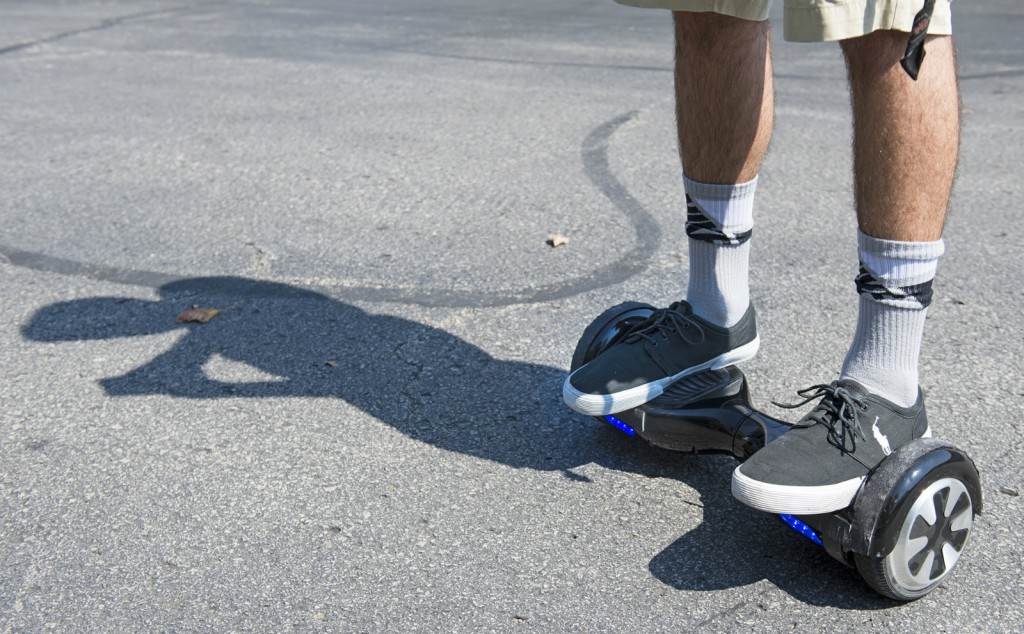
Ohio State bans certain types of hoverboards in university residence halls. Credit: Courtesy of TNS
Ohio State students might have to leave one particular holiday gift back home or under the tree after the university put a restriction on one of this holiday season’s most popular tech gifts.
The Office of Student Life University Housing announced this month it will not permit the use or possession of certain hoverboards in university residence halls.
The limitation pertains to hoverboards and other lithium battery-powered transportation devices, if those devices are not approved by Underwriters Laboratory, a federally-approved safety consultation and certification firm.
The decision to restrict certain hoverboards, which are self-balancing personal transportation devices that don’t actually hover, was made due to fire safety concerns by the university, said Office of Student Life spokesman Dave Isaacs.
“We’ve been watching with great interest the number of incidents of fires that have occurred in regard to these products,” he said.
The Consumer Products Safety Commision is currently investigating the cause of hoverboard-related fires in the U.S.
Isaacs said several university offices, including the Office of Risk Management and the Department of Public Safety, came together to make the decision in mid-December, shortly after the CPSC announced it would investigate the devices.
“It felt prudent on our side, at this point, to put some restrictions on hoverboards in residence halls,” Isaacs said. “There are safety concerns, and we want to make sure that all of our students, faculty and staff, as well as the Ohio State community, are safe.”
CPSC Chairman Elliot Kaye released a statement on Dec. 16 addressing the nationwide rise in concern of the potential fire hazard of the devices.
“Look for the mark of a certified national testing laboratory,” Kaye said. “While this does not rule out counterfeits, the absence of such a mark means your safety is likely not a priority for that manufacturer.”
Hoverboards carrying UL approval will be permitted in residence halls. However, students will still not be allowed to ride them inside buildings, as per policies outlined within this academic year’s residence hall handbook.
Student Life University Housing sent an email to students during winter break, outlining university guidelines for proper use and maintenance.
The regulations, which echoed risk-reducing tips offered by the CPSC, include requirements to not charge hoverboards unobserved or overnight, charge and store devices in dry areas and away from combustible items, and allowing hoverboards to cool for an hour after use before charging.
The new hoverboard regulations are in line with university policies that on-campus residents are allowed to use some personal appliances in residence hall rooms and suites on condition that those devices are in good-working condition and carry UL approval, according to the university’s residence hall handbook.
Several other Big Ten universities have outright prohibited hoverboards in residence halls, including Indiana University, Purdue University and the University of Michigan.
Student Life is unaware of any hoverboard-related fires occurring in OSU residence halls to date, and Isaacs said his office hopes these regulations help ensure that continues to be the case.


